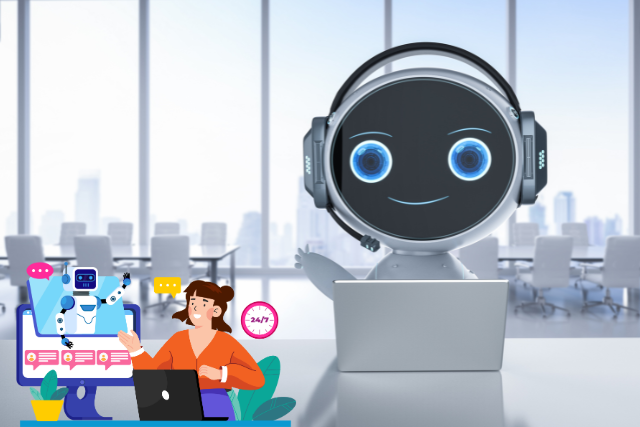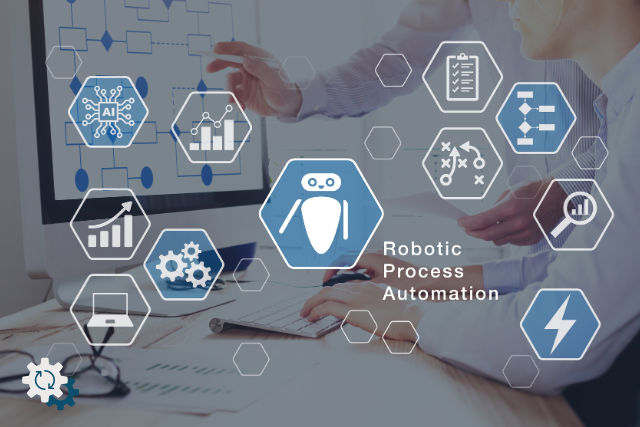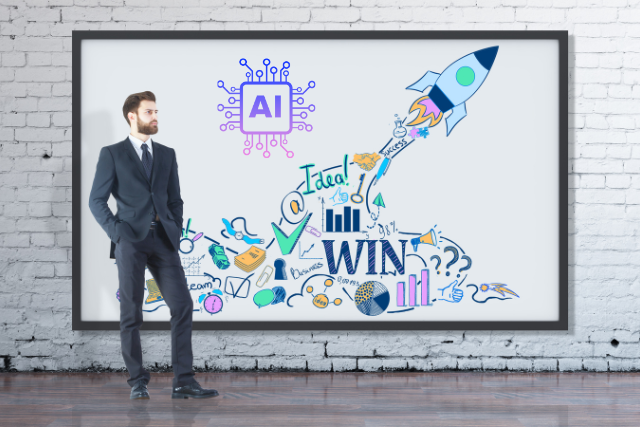AI-Powered Business Automation: How to Scale Faster and Smarter in 2025

AI-powered business automation is no longer a luxury—it’s a necessity for scaling efficiently while reducing operational costs. Whether you’re a startup, small business, or large enterprise, AI tools can streamline your workflows, improve decision-making, and enhance customer experiences.
This article explores how AI-powered automation can transform your business, the top tools to use, and practical strategies for implementation.
What is AI-Powered Business Automation?
AI-powered business automation refers to the use of artificial intelligence and machine learning to handle repetitive tasks, optimize processes, and improve decision-making. Unlike traditional automation, AI can analyze vast amounts of data, adapt to new patterns, and even make intelligent recommendations.
Key Benefits of AI Business Automation:
- Increased Efficiency – Automate repetitive tasks, freeing up human resources for higher-value activities.
- Cost Savings – Reduce labor costs and operational expenses.
- Improved Accuracy – Minimize human errors in processes like data entry, customer support, and financial transactions.
- Better Customer Experience – Offer 24/7 AI-powered support and personalized experiences.
- Scalability – Handle increased workload without a proportional rise in expenses.
How Businesses are Using AI Automation in 2025
1. AI-Powered Chatbots & Virtual Assistants
Chatbots like ChatGPT, Drift, and Intercom are revolutionizing customer support. These tools can:
- Respond instantly to customer inquiries.
- Handle multiple conversations simultaneously.
- Provide personalized product recommendations.
- Integrate with CRM systems for seamless customer interactions.

2. AI in Marketing Automation
Marketing automation platforms like HubSpot, Marketo, and ActiveCampaign use AI to:
- Segment audiences based on behavior.
- Optimize email marketing campaigns.
- Predict customer purchase patterns.
- Automate content creation and social media posting.
3. AI in Sales & Lead Generation
AI tools like Gong, Pipedrive, and Apollo.io help sales teams by:
- Analyzing sales calls for actionable insights.
- Predicting which leads are most likely to convert.
- Automating follow-ups and reminders.
4. AI-Powered HR & Recruitment
AI-driven platforms like HireVue and Workable automate HR processes by:
- Screening resumes and shortlisting candidates.
- Conducting AI-powered video interviews.
- Analyzing employee performance and engagement.
5. AI in Finance & Accounting
Financial automation tools like QuickBooks AI, Xero, and Fyle help businesses:
- Automate invoicing and bookkeeping.
- Detect fraudulent transactions.
- Provide predictive financial insights.
6. AI for Workflow Automation
AI-driven workflow automation tools like Zapier, n8n, and Pabbly Connect enable businesses to:
- Automate multi-step processes across different apps.
- Eliminate manual data entry.
- Improve team collaboration with smart integrations.

Implementing AI Automation in Your Business
Step 1: Identify Repetitive Tasks
Begin by listing tasks that consume significant time, such as:
- Data entry and document processing.
- Customer inquiries and support tickets.
- Marketing and sales outreach.
Step 2: Choose the Right AI Tools
Select AI solutions based on your industry and needs. Some options include:
- For Customer Support: Chatbots like Drift or Zendesk AI.
- For Marketing: AI-powered email automation via HubSpot.
- For Finance: Automated invoicing with QuickBooks AI.
Step 3: Train Your Team & Optimize AI Integration
Ensure your team understands AI tools and how to use them effectively. Offer training sessions and test automation workflows before full implementation.
Step 4: Monitor & Improve Performance
AI tools learn over time, so track key performance indicators (KPIs) and adjust settings as needed. Use analytics to measure efficiency gains and ROI.
Future Trends in AI Business Automation
1. AI-Powered Decision-Making
More businesses will rely on AI-driven insights for strategic decisions, reducing the need for manual analysis.
2. Hyper-Personalization
AI will continue refining customer interactions, offering highly personalized experiences through predictive analytics.
3. No-Code & Low-Code AI Platforms
Businesses will increasingly adopt no-code AI tools, making automation accessible to non-technical users.
4. AI & IoT Integration
The combination of AI with Internet of Things (IoT) devices will enable smarter, real-time automation for industries like logistics and healthcare.
Conclusion
AI-powered business automation is transforming how companies operate, making them more efficient, cost-effective, and scalable. By leveraging AI-driven tools, businesses can enhance customer experiences, streamline operations, and gain a competitive edge.
Are you ready to automate your business? Start exploring AI tools today and unlock new growth opportunities!
FAQs
1. Is AI automation only for large businesses?
No, AI automation is accessible to businesses of all sizes, with many affordable no-code solutions available.
2. Can AI replace human workers?
AI is designed to assist humans by automating repetitive tasks, allowing employees to focus on high-value activities.
3. How much does AI automation cost?
Costs vary depending on the tool and usage. Some AI tools offer free tiers, while enterprise solutions may require a subscription.
4. What industries benefit most from AI automation?
E-commerce, finance, healthcare, customer service, and marketing sectors benefit significantly from AI-driven automation.
5. How can I start with AI automation?
Begin by identifying time-consuming tasks, researching AI tools, and gradually implementing automation solutions.






